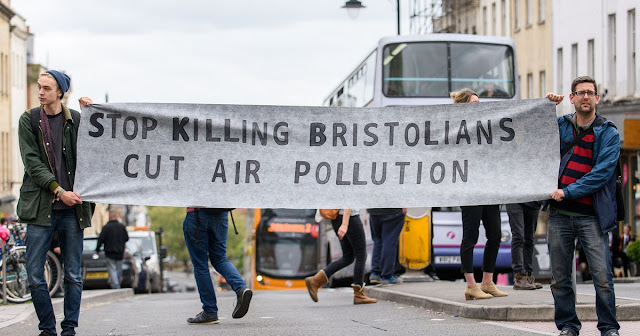Every week, Bristol's polluted air kills five people, researchers report high health risks
Dramatic situation in Bristol (south-west England) where five people die every week due to high levels of air pollution. Study found that Bristol has higher levels of PM2.5 pollution than Liverpool and Greater Manchester, but a lower mortality rate, partly because it is less densely populated.
Researchers at King's College in London have calculated that fine particles and nitrogen dioxide that pollute the Bristol air cause the death of around 260 people each year. These pollutants could cause up to 36,000 deaths in the UK each year and even contribute to various health conditions including asthma, lung cancer, heart disease, stroke and diabetes.
The research, commissioned by the United Kingdom, revealed that a child born in 2011 could die six months in advance if exposed during his life to air pollution in the city, within the general framework presented to the EU which revealed that 83% of the reporting areas in the UK have illegal levels.
The study examined the combined impact of PM2.5 (which comes mainly from domestic combustion of wood and coal), industrial combustion and nitrogen dioxide (which come mainly from older polluting vehicles).
A major economic damage, with an annual health impact cost of air pollution in Bristol was £ 170 million a year. Public Health England assessed in a 2018 report that the total national cost for the NHS and social care budgets for air pollution could reach £ 5.56 billion for combined PM2.5 and NO2.
The administration is moving to try to mitigate the situation. Marvin Rees, mayor of Bristol, who will host a summit on air pollution, said: «We have a moral, ecological and legal duty to clean up the air we breathe. This research emphasises how vital it is that we act quickly to improve health and save lives in Bristol».
This month the city announced radical plans to tackle the problem, including a proposal to ban diesel cars from the central areas between 7:00 and 15:00 from 2021. Plans are subject to government approval and consultation with residents and companies.



Comments
Post a Comment